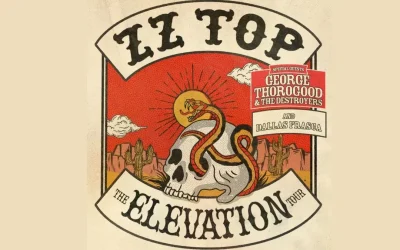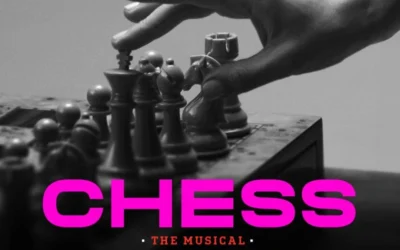By Donald Jeremiah Trella
Are the Los Angeles Angels Gouging Baseball Fans? Part 2: The Angels’ Rebuttal (or How I Learned to Stop Worrying and Love the Wisdom of Damon Wayans)
Upon analyzing the terms of the Angels’ contract with its season ticket holders and figuring out how the Angels stand to benefit financially by stopping season ticket holders from reselling tickets they can’t use for less than face value, I thought I had uncovered something the Angels didn’t want to be immediately apparent to the general public. So, when I contacted Robert Alvarado, the Angels’ Director of Marketing and Ticket Sales, I was expecting an alternative justification for the stricter new resale policy (and particularly the prohibition on reselling for less than face value), rather than a flat admission of what I might call ‘the Damon Wayans motive’: “Mo’ money, mo’ money, mo’ money …”
Hence, I quite surprised when that was essentially what I got. “I already have the season ticket holders’ money,” Alvarado said, “so why would I want to craft a policy that would reduce my overall sales of single-game tickets?” Alvarado went on, explaining that the new policy changes have been adopted as a direct attack on ticket scalpers:
“Look, the problem is that there are some people who buy these tickets with the intention of attending only a few games, if any at all. The season ticket package either becomes a for-profit economic investment, or an attempt by some of our fans to see a good portion of our games at steep discount. The season ticket program does not exist for either of those purposes, however – in theory, it’s supposed to allow loyal fans to attend all (or nearly all) of the home games at a moderate discount … People know they can buy a season seat, sell their tickets for say, 10 big games like games against the Yankees or Oakland, and recoup a good chunk of the cost of their season ticket. By letting them sell for less than face value, it would just help them either break even or turn an overall profit on their investment by letting them recover part of the cost of a ticket to a lower-interest game that they can’t sell for a profit.”
After playing Devil’s Advocate (no pun intended there) with Alvarado for almost an hour, I must admit the man would be a tremendously successful debater (and I regret forgetting to ask him if he had any sort of experience with it in college or elsewhere in the past). However, when I pressed him on a few points, I received answers that left a little to be desired.
For example, I asked him why, if the new policy limits season seat holders to selling tickets for only 30 of the 81 games, would someone who simply seeks to make a profit off of season tickets choose to waste one of these 30 opportunities selling for below face value? His response was to sort of change the subject, explaining how the season ticket holders’ have infinite opportunities to sell, but are limited to 30 successful sales.
But that’s irrelevant, of course. He wouldn’t admit that, for a pure profit-seeker, selling for less than face value (if you can only sell 30 tickets) doesn’t make financial sense, because there do exist 30 games that are “in demand enough” such that one could get face value or better. His avoidance of such an admission was smart, for had he done so, he would have been forced to concede that the person selling the ticket was not a profit-seeker, but rather a loyal fan who simply couldn’t make it to the game on a given day like he/she usually does — which would prove that while the restrictions might *target* profit-seekers, they hurt loyal fans too.
I also asked why someone would ever be driven to sell for less than face value in the first place, since the face value that is printed on a season ticket holder’s ticket is already cheaper than a single-game ticket for a similar seat. If they posted at “face value”, even with the Angels’ 20% markup, a season seat holder’s seat for a given game would still be a little cheaper than a single-game ticket in roughly the same location. So common sense tells us season seat holders’ tickets that are posted for resale should be selling like hotcakes.
Alvarado responded by saying that not everyone is aware of these tickets’ availability. “And that’s a complaint I hear a lot, by the way,” he added. “I have these angry season seat holders calling me up saying, ‘You’re not doing anything to promote this program. No one knows about it.’ … I mean, what do they expect me to do, run a television commercial for them? It’s not in our interest to actively promote it – there’s a link on the front page of our website, and if people aren’t using the program, that’s not my problem.”
I didn’t remember seeing such a link when I was on the Angels’ website, so I checked out this claim. Interestingly, there isn’t any direct link on the front page, nor is there any direct link by clicking on “Tickets”. One must click “Tickets” on the front page, then find, in small print, a tab on the left side of the “Tickets” page entitled “Ticket Technology” which then leads to another tab that says “Angels Ticket Exchange”. That’s three steps, in total, from the main page. Moreover, it’s also worth considering why a buyer would bother clicking a link entitled “Ticket Exchange”. “Ticket Exchange” doesn’t quite scream out “tickets for sale here” to a potential single-game ticket buyer. In fact, the first time I saw the link when doing research for this article, I missed it at first. I thought (quite reasonably, I’d argue) that “Ticket Exchange” was the page you wanted to visit if you had tickets to a game that got rained out.
To be fair, one argument that seemed initially compelling and made me quite sympathetic to the Angels’ case was that by allowing season seat holders to legally sell Angels’ season tickets via the Angels’ service, they could (if they chose a few really popular games to sell) end up paying so little per game for a season seat that no-shows at games by season seat holders become more likely. “We can price our tickets low because we bank on getting $20 when fans park their car, plus concession and souvenir revenue,” Alvarado said. “When we have empty seats, not only do we lose out, but fans who genuinely love our team and want to be at the game lose out – that’s why our resale restrictions had to be tougher this year.”
But ego often gets the best of all of us: as I reviewed my notes, I noticed that earlier in the interview, Alvarado had already beamed with pride about the fact that under his tenure last year, the lowest attendance had been for any one of the 81 home games was 97%. So his claim that “scalpers are ruining everyone’s fun by causing a pandemic of empty seats” appears unfounded.
At the end of the day, it seems both the restriction on season ticket holders’ ability to market tickets they can’t use via services other than the Angels’ service (which they more or less openly admit to not advertising), as well as the prohibition on reselling for below face value – which would expand the opportunity to attend Angels games to more people – should be carefully reconsidered.
Come back to ticketnews.com tomorrow for the conclusion to this investigative report, where we will explore the reaction the Angels’ new policy is provoking, including a statement from Al Sharpton’s National Action Network and an exploration of possible legal issues associated with the new policy.




